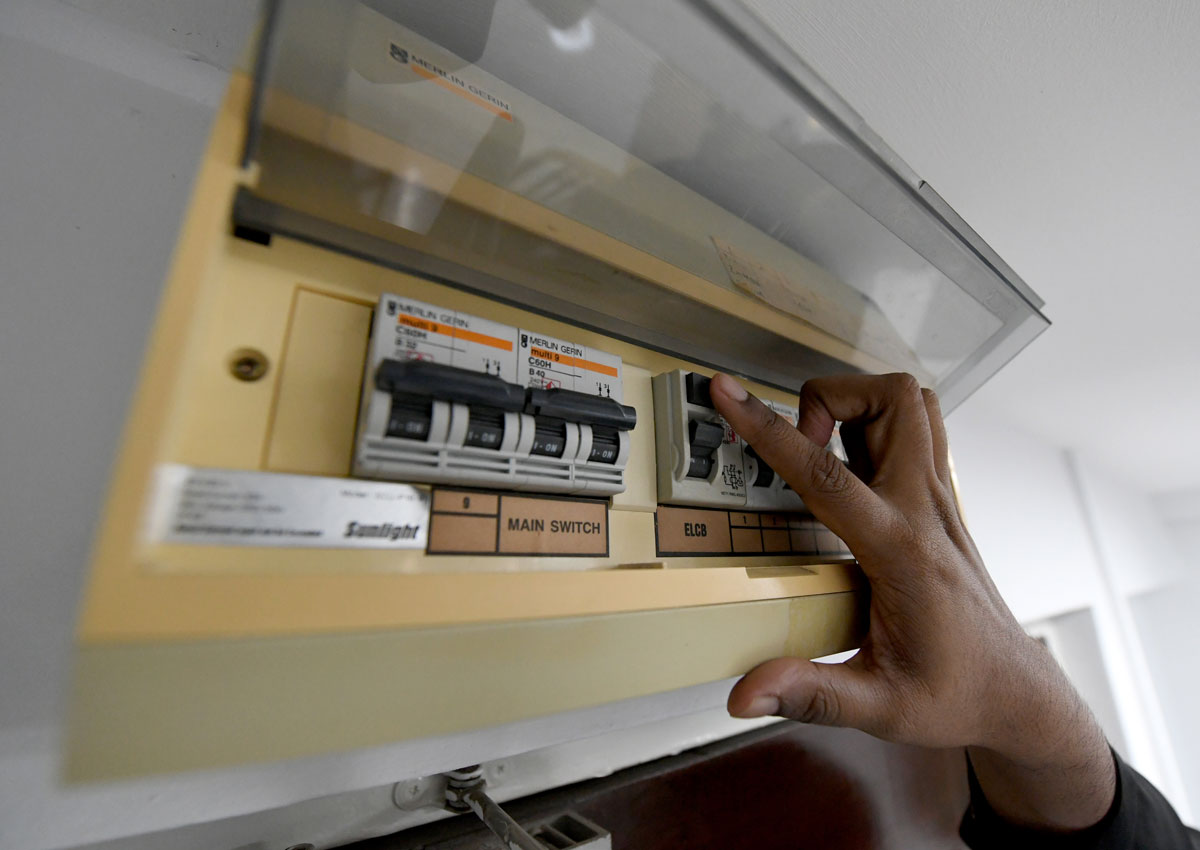Industry group raises awareness following teen’s suspected fatal electrocution.
Pressing a button at home regularly could save your life.
This is the “test” button, typically denoted by a “T” on the circuit breaker, a safety device found in all households and buildings.
If you press that button and all electricity cuts off, that means it is functioning. A working circuit breaker will cut off electricity in the event of a current leakage, like when someone touches a live wire, minimising the chances of fatal electrocution.
The Singapore Electrical Contractors and Licensed Electrical Workers Association (Seca) is calling for more awareness on circuit breaker maintenance, following the death of a 15-year-old boy who was apparently electrocuted while showering at home.
Tan Yao Bin suffered cardiac arrest and died despite attempts by paramedics who administered cardiopulmonary resuscitation.
It is believed that a cable along the shower head was exposed, in the incident at Block 233, Bukit Batok East Avenue 5.
Mr Ken Jung, vice-president of technical aspects at Seca, said: “We need to be proactive instead of reactive. We need more education and awareness on the maintenance of the circuit breaker at home.”
He also cautioned residents not to do any repair work themselves and to engage a qualified electrician instead.
The Energy Market Authority (EMA), the power systems regulator, said the circuit breaker should be tested once a month.
“This should cause the breaker lever to trip immediately and flip down. If the lever does not flip down, contact a licensed electrical worker to look into this,” an EMA spokesman said.
Explaining the importance of the circuit breaker, known as the Residual Current Circuit Breaker, Mr Jung said that it cuts off electricity when 30 milliamperes of current passes through its sensor. That has been regulated as a safe amount.
The Public Utilities Board, then the electricity authority, mandated that circuit breakers be installed in all homes by July 1985.
Mr Jung added that water is a good conductor of electricity and that without a working circuit breaker to cut off the electricity, it would find a path through the body to go to the ground.
“Any path it takes will burn the internal organs. If it goes through the heart, victims will typically die,” he said.
Only 10 per cent of people who experience electrocution survive and, even then, they are likely to experience health problems.
The EMA advises residents not to touch an open electrical outlet or electrical switch with wet hands as this can lead to current leakage and potentially fatal electric shocks.
A spokesman said people also should not “piggyback” multiple plugs into one socket by using multiple adaptors, because overloading power points may lead to overheating and fire.
She also said residents should verify that those hired to do electrical works are EMA-licensed.
Mr Jung said Seca would like to work with the authorities to promote awareness of the role of the circuit breaker through videos and posters.
He added that other countries like Malaysia regularly use the media to educate their citizens on the importance of ensuring their circuit breakers are functioning.
Ms Hemavathi Panneerselvam, 29, said she thinks many people in Singapore, including herself, take safety for granted.
The accountant said: “We are lucky that in the past, our circuit breaker was working, even though we didn’t check it.
“I will be checking it regularly, because now I know it can save lives.”
Read also: Boy, 15, possibly electrocuted in shower

This article was first published on Dec 7, 2016.
Get a copy of The Straits Times or go to straitstimes.com for more stories.






